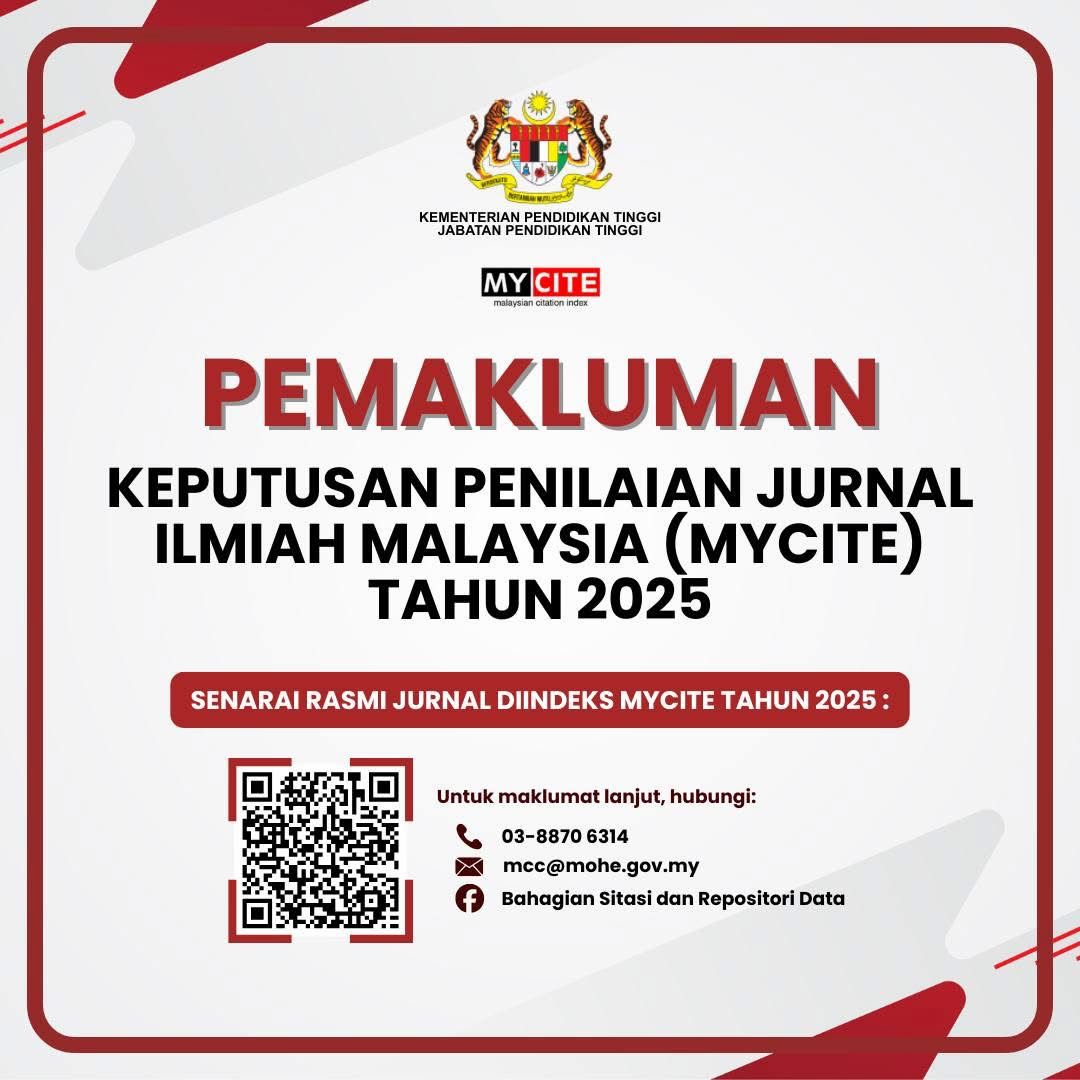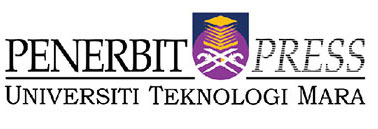The Art of Knowledge Sharing Towards Construction Project Success
DOI:
https://doi.org/10.24191/idealogy.v10i2.894Keywords:
Knowledge sharing, Construction industry, Project management, Malaysia, ContractorAbstract
The construction industry plays a central role in Malaysia’s development but continues to face
persistent challenges such as delays, cost overruns, and inefficiencies, many of which are linked to
fragmented knowledge management. This study addresses the first objective of a broader research
project: to identify the knowledge sharing (KS) practices employed in construction projects, with a
focus on Grade 7 contractors in Selangor. Drawing on literature and empirical evidence, eight KS
practices were examined, including face-to-face interaction, formal practices, meetings, learning
support, project briefings, phone calls, lessons learnt from previous projects, and ICT tools. A
quantitative survey design was applied, yielding 270 valid responses from project managers, engineers,
and site personnel. Data were analysed using descriptive statistics, with reliability and normality
testing confirming robustness. The findings reveal that meetings, face-to-face interactions, and lessons
learnt from past projects are the most dominant KS practices, while learning support and phone calls
are less frequently utilised. ICT tools were moderately adopted, reflecting gradual digitalisation within
the sector. Overall, the results demonstrate that KS in Malaysian construction is predominantly
interpersonal and experiential, with digital mechanisms serving as complementary supports. These
insights provide empirical confirmation of the hybrid nature of KS, blending formal and informal
practices to sustain collaboration in complex project environments. The study concludes that
institutionalising a balanced mix of these approaches is critical for improving project outcomes and
enhancing the overall competitiveness of the Malaysian construction industry.
Keywords: Knowledge sharing, Construction industry, Project management, Malaysia, contractors
References
Abdul Manaf, H., & Harvey, W. S. (2020). Sharing Managerial Tacit Knowledge. In Open Government
(pp. 2318–2346). IGI Global. https://doi.org/10.4018/978-1-5225-9860-2.ch105
Abdullah, B., & Alqarni, A. (2022). Knowledge Sharing in International Business: A Literature Review
Study. In Tehnicki Glasnik (Vol. 16, Issue 3, pp. 401–411). University North.
https://doi.org/10.31803/tg-20220305124542
Ajmal, M. M., & Koskinen, K. U. (2008). Knowledge Transfer in Project-Based Organizations: An
Organizational Culture Perspective. Project Management Journal, 39(1), 7–15.
https://doi.org/10.1002/pmj.20031
Ali, I., Musawir, A. U., & Ali, M. (2016). Impact of Knowledge Sharing and Absorptive Capacity on
Project Performance: The Moderating Role of Social Processes. http://www.bam.ac.uk/
Baporikar, N. (2020). Learning Link in Organizational Tacit Knowledge Creation and Dissemination.
International Journal of Sociotechnology and Knowledge Development, 12(4), 70–88.
https://doi.org/10.4018/IJSKD.2020100105
Bucher, J., Burmeister, A., Osland, J. S., & Deller, J. (2020). The influence of empowering leadership
on repatriate knowledge transfer: understanding mechanisms and boundary conditions. The
International Journal of Human Resource Management, 1–26.
https://doi.org/10.1080/09585192.2020.1771400
Carrillo, P. M., Anumba, C. J., Al-Ghassani, A. M., & Robinson, H. S. (2001). Perceptions and barriers
in implementing knowledge management strategies in large construction organisations.
https://www.researchgate.net/publication/228965849
Chan, A. P. C., & Chan, A. P. L. (2004). Key performance indicators for measuring construction
success. Benchmarking: An International Journal, 11(2), 203–221.
https://doi.org/10.1108/14635770410532624
CIDB Malaysia. (2024, December 12). Part 2: Navigating Challenges and Embracing Opportunities
in Malaysia’s Construction Landscape. CIDB Malaysia. https://www.cidb.gov.my/eng/part-2-
navigating-challenges-and-embracing-opportunities-in-malaysias-construction-landscape/?utm_campaign=part-2-navigating-challenges-and-embracing-opportunities-inmalaysias-construction-landscape&utm_medium=rss&utm_source=chatgpt.com
Dave, B., & Koskela, L. (2009). Collaborative knowledge management-A construction case study.
Automation in Construction, 18(7), 894–902. https://doi.org/10.1016/j.autcon.2009.03.015
Dulaimi, M. F. (2004). Case studies on knowledge sharing across cultural boundaries.
https://doi.org/10.1108/09699980710829012
Egbu, C. O. (2004). Managing knowledge and intellectual capital for improved organizational
innovations in the construction industry: An examination of critical success factors. Engineering,
Construction and Architectural Management, 11(5), 301–315.
https://doi.org/10.1108/09699980410558494
Hernstig, M., & Zafar, M. (2021). Intra-organizational knowledge sharing in the construction industry.
Hobday, M. (2000). The project-based organisation: an ideal form for managing complex products and
systems? Research Policy, 29(7–8), 871–893. https://doi.org/10.1016/S0048-7333(00)00110-4
Hsu, I.-C., & Wang, Y.-S. (2008). A Model of Intraorganizational Knowledge Sharing. Journal of
Global Information Management, 16(3), 45–73. https://doi.org/10.4018/jgim.2008070103
Ismail Al‐Alawi, A., Yousif Al‐Marzooqi, N., & Fraidoon Mohammed, Y. (2007). Organizational
culture and knowledge sharing: critical success factors. Journal of Knowledge Management, 11(2),
22–42. https://doi.org/10.1108/13673270710738898
Kim, S.-J. (2019). Knowledge Sharing and Collaboration within and across Firms. In Management.
Oxford University Press. https://doi.org/10.1093/obo/9780199846740-0163
Krejcie, R. V., & Morgan, D. W. (1970). Determining Sample Size for Research Activities. Educational
and Psychological Measurement, 30(3), 607–610. https://doi.org/10.1177/001316447003000308
Kumaraswamy, M., & Dulaimi, M. (2001). Empowering innovative improvements through creative
construction procurement. Engineering Construction and Architectural Management, 8(5–6), 325–
334. https://doi.org/10.1046/j.1365-232X.2001.00215.x
Law, C. C. H., & Ngai, E. W. T. (2008). An empirical study of the effects of knowledge sharing and
learning behaviors on firm performance. Expert Systems with Applications, 34(4), 2342–2349.
https://doi.org/https://doi.org/10.1016/j.eswa.2007.03.004
Martín Cruz, N., Martín Pérez, V., & Trevilla Cantero, C. (2009). The influence of employee motivation
on knowledge transfer. Journal of Knowledge Management, 13(6), 478–490.
https://doi.org/10.1108/13673270910997132
Navimipour, N. J., & Charband, Y. (2016). Knowledge sharing mechanisms and techniques in project
teams: Literature review, classification, and current trends. In Computers in Human Behavior (Vol.
62, pp. 730–742). Elsevier Ltd. https://doi.org/10.1016/j.chb.2016.05.003
Nazim, M., & Mukherjee, B. (2016). Factors Critical to the Success of Knowledge Management. In
Knowledge Management in Libraries (pp. 263–286). Elsevier. https://doi.org/10.1016/b978-0-08-
100564-4.00011-9
Negara, K., Suryo, E., & Wijatmiko, I. (2021). Tacit Knowledge Acquisition and Codification in
Construction Industry: Evidence from Indonesia. https://doi.org/10.2991/aer.k.211221.005
Nonaka, I., & Takeuchi, H. (1995). The Knowledge-Creating Company: How Japanese Companies
Create the Dynamics of Innovation. Oxford University Press.
Olanrewaju, A. L., & Lee, A. H. J. (2022). Investigation of the poor-quality practices on building
construction sites in Malaysia. Organization, Technology and Management in Construction: An
International Journal, 14(1), 2583–2600. https://doi.org/10.2478/otmcj-2022-0008
Polanyi, M. (1958). Personal Knowledge: Towards a Post-Critical Philosophy (Vol. 20, Issue 3).
University of Chicago Press.
Raza Abidi, S. S. (2007). Healthcare Knowledge Sharing: Purpose, Practices, and Prospects (pp. 67–
86). https://doi.org/10.1007/978-0-387-49009-0_6
Ribeiro, F. L. (2009). Enhancing knowledge management in construction firms. Construction
Innovation, 9(3), 268–284. https://doi.org/10.1108/14714170910973493
Roux, D. J., Rogers, K. H., Biggs, H. C., Ashton, P. J., & Sergeant, A. (2006). Bridging the ScienceManagement Divide: Moving from Unidirectional Knowledge Transfer to Knowledge Interfacing
and Sharing.
Sveiby, K. E. (2007). Disabling the context for knowledge work: The role of managers’ behaviours.
Management Decision, 45(10), 1636–1655. https://doi.org/10.1108/00251740710838004
Tangaraja, G., Mohd Rasdi, R., Abu Samah, B., & Ismail, M. (2016). Knowledge sharing is knowledge
transfer: a misconception in the literature. Journal of Knowledge Management, 20(4), 653–670.
https://doi.org/10.1108/JKM-11-2015-0427
Xue, J., Shen, G. Q., Yang, R. J., Wu, H., Li, X., Lin, X., & Xue, F. (2020). Mapping the knowledge
domain of stakeholder perspective studies in construction projects: A bibliometric approach.
International Journal of Project Management, 38(6), 313–326.
Downloads
Published
Issue
Section
License
Copyright (c) 2025 UiTM Press

This work is licensed under a Creative Commons Attribution-NonCommercial-NoDerivatives 4.0 International License.
UiTM Press (the Publisher) has agreed to publish the undersigned author’s paper in Idealogy Journal. The agreement is contingent upon the fulfilment of a number of requirements listed below.
1. The undersigned author warrants that the paper entitled below is original, that it is not in any way libellous or unlawful in Malaysia, that it does not infringe any copyright or other proprietary right. The undersigned hereby represents and warrants that he/she is the author of the paper, except for material that is clearly identified as to its original source, with permission notices from the copyright owners where required. The undersigned represents that he/she has the power and authority to sign and execute this agreement.
2. The undersigned author warrants that the paper entitled below has not been published elsewhere, and also it will not be submitted anywhere else for publication prior to acceptance/rejection by this Journal.
3. By submitting the paper entitled below, the undersigned author agrees to transfer the rights to publish and distribute the paper in an international e-journal (entitled above) to Publisher.
4. The undersigned author agrees to make a reasonable effort to conform to Publisher's submission guidelines and to liaise with the editor to ensure that the requirements of these guidelines are met to a reasonable degree.
5. The corresponding author signs for and accepts responsibility for releasing this material on behalf of any and all coauthors. This agreement is to be signed by at least one of the authors who has obtained the assent of the co-author(s) where applicable. After submission of this agreement signed by the corresponding author, changes of authorship or in the order of the authors listed will not be accepted.




